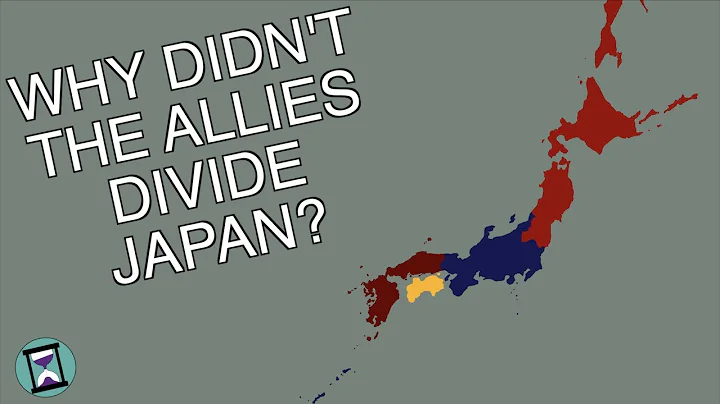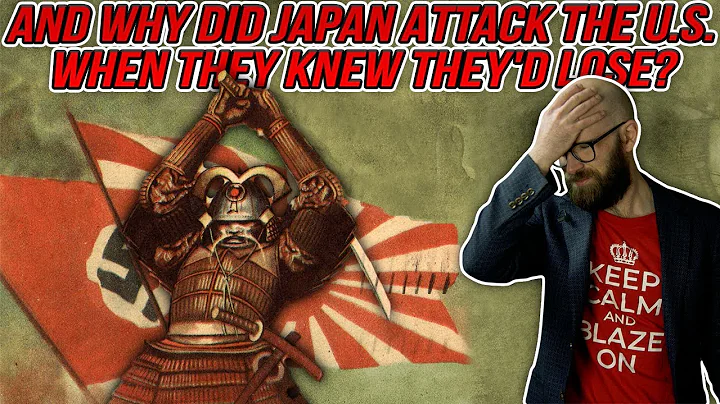After the First World War, , fascist thoughts began to permeate the world, not to mention Germany and Italy. Fascist thoughts also appeared in Japan, an island country far in the east.
Japanese thinker Kitaki wrote a book "The Outline of the Japanese Transformation Act", which is considered the " Japanese Fascist Bible". This book advocates that Japan should stop implementing the constitution, dissolve the parliament, let the military reform the country, and build Japan into a "pure socialist country " (it should be the national socialism passed down from Germany). Externally, it advocates the implementation of the so-called "liberation of Asian nations", the establishment of a "world federation" and so on. This book is extremely ambitious and evil! Japan's subsequent expansion abroad basically conformed to the propositions in the book.

According to historical data, there were more than 100 fascist groups in Japanese society at that time, and most of their members were young people. Soon fascist ideas penetrated into the Japanese army. Some young soldiers formed the "Sakura Kai" fascist organization, openly advocating "Great Japanism", advocating waging war abroad, and establishing a dictatorial government dominated by military personnel...
1930 In 2000, the Japanese government participated in the International Disarmament Conference and signed a treaty restricting naval vessels in order to compromise with Britain and the United States. This angered the Japanese military headquarters , especially those young soldiers. Because the authority to command the Japanese military belongs to the Emperor, the Army General Staff Headquarters and the Naval Command Department are directly under the leadership of the Emperor. The military is independent of the Japanese government, and the Japanese Prime Minister has no authority to control the military - at this time, the Japanese Prime Minister is Hamaguchi Yuyuki.

The cabinet of Hamaguchi Yuyuki signed this treaty restricting naval ships. Japanese fascists believed that it was an overstep of authority. The army belongs to the emperor, and the Japanese Prime Minister represents the government. The government has no power to sign this treaty. This simply does not take the emperor into consideration!
The military fascists were very dissatisfied. They planned to launch a coup, force Hamaguchi Yuyuki to resign, and then elect Ugaki Kazunari (considered the theoretical founder of Japan's militaristic national mobilization system) to form a fascist dictatorship. The young soldiers of the "Sakura Club" were about to take action, but Ugaki Kazunari stepped on the brakes to stop them. Maybe he thought it was better not to engage in internal fighting.

But the folk fascists did not put the brakes on. A radical young man from the fascist organization " Patriotic Society " assassinated Hamaguchi Yuyuki and seriously injured him. Two surgeries were performed to save his life, but he died of bacterial infection in the wound a few months later.

After the death of Prime Minister Hamaguchi Yuyuki, Inukai Takeshi came to power to form a cabinet (there was also a transitional cabinet in the middle, which lasted a very short time). Inukai Takeshi is a politician with normal thinking and is very wary of the fascist trend in Japan. He knows that if Japan is led by the fascists, it will lead the country and nation into an abyss of eternal destruction.
Inukai Yi was a good friend of Sun Yat-sen and admired Sun Yat-sen very much. During the Revolution of 1911, he even visited Wuchang to show his support for Sun Yat-sen and other revolutionaries. Inukai Takeshi's foreign policy towards China is to adopt a "non-expansion" policy, which means that the situation in Northeast China after September 18 should not expand and intensify conflicts, but should be cooperation and peace.

Inukai Yi sent his confidant Kawano Nagachi to Shanghai (Kawano Nagachi, a member of the Chinese Tongmenghui , had a close relationship with Sun Yat-sen, and was an adviser to Sun Yat-sen's Chinese Revolutionary Army) to reach an agreement with the Executive President of the Republic of China Sun Ke The agreement was signed, and its contents mainly include (not complete, just list a few key points):
First, recognize China’s suzerainty over Northeast China.
Second, China and Japan are conducting economic cooperation in Northeast China.
Third, establish a new government in the Northeast. (To put it bluntly, we want to establish a government that is obedient to Japan, not disobedient like Zhang Zuolin Zhang Xueliang).
Fourth, designate this area as a model area for the implementation of Three People's Principles .

This agreement is unfair to China. It obviously wants to substantially dominate the three northeastern provinces economically, but after all, it also recognizes the sovereignty of Northeast China and does not intend to annex Northeast China militarily.The Nanjing government is basically satisfied with this agreement. The most dissatisfied are the Japanese Military Department and the Kwantung Army. The Japanese Military Department wants not only economic benefits, but also the "independence" of the Northeast and become Japan's puppet.
Therefore, the Japanese Military Ministry strongly opposed the agreement, saying that Inukai Takeshi's "coordinationism" was simply a traitorous act. In the end, Inukai Yi had to withdraw from the agreement due to political considerations.

On March 1, 1932, under the operation of the Japanese Kwantung Army, the "Puppet Manchukuo" was established, and the fascists in Japan were jubilant. Inukai Takeshi was very angry at the radical behavior of the Japanese military headquarters and the Kwantung Army, and firmly refused to recognize the "Puppet Manchukuo". In order to bring Japan back on the right path, Inukai Takashi petitioned the Emperor, proposing to remove more than 30 radical officers from the General Department and to rectify military discipline.
As soon as the dismissal incident came out, the soldiers were furious. The young military fascists even regarded Inu Yangyi as a bandit and wanted to get rid of him quickly.
In May 1932, seven active-duty officers, led by naval officer Koga Kiyoshi, together with 11 military school students and more than a dozen civilian fascists, decided to take "direct action" against Inukai Takeshi - to kill him!

html On May 15, Takeshi Inukai suffered from rhinitis and rested at the Prime Minister's residence after being treated by a doctor. At about 5:30 pm, more than a dozen navy and army cadets and non-commissioned officers forced their way into the Prime Minister's official residence. Unexpectedly, the security measures at the Japanese Prime Minister's official residence were so casual at that time that a dozen recruits could break in just like that.
According to Japanese folklore, after the dozen or so people rushed in, Inukai Takeshi said to them, "Speak to them if you have something to say." One of them said, "No need to talk anymore, shoot." Then there were several gunshots... …
The maids from the Prime Minister’s Office heard the gunshots and rushed to the scene. The dozen or so people had already run away. Inukai Yi's nose and mouth were bleeding and he was still conscious. He said in a weak voice: "Take away the person who shot me just now. Ask him carefully and listen to what he has to say."

While assassinating Inukai Yi, those fascists The elements also threw grenades at many places including the residence of the Minister of the Interior, the Metropolitan Police Department, the Seiyoukai headquarters, and Mitsubishi Bank.
Maybe there are some elements of daring in Japanese culture. Those fascists all turned themselves in to the military police after finishing their actions. A dozen people who assassinated Inukai Yi also surrendered.
This incident is the famous " May 15 Incident" in Japanese history.

Later, these fascists who participated in the assassination and used hand grenades were tried. More than 300,000 Japanese people signed a petition asking the court for leniency. The petition stated that although these soldiers broke the law, "their motives were pure and we are deeply moved by their spirit of self-sacrifice."
There were even a few young folk (mostly populists and fascists) who cut off their little fingers, soaked them in wine jars, and sent them to the court, expressing their willingness to die for the murderers of Inukai Yi.
It can be seen that Japan's populism and fascism have a broad mass base among the people. It is really not surprising that Japan later developed into a militaristic country and embarked on the road of external expansion.

Originally, the fascists wanted to assassinate the famous comedian Chaplin . They believed that Chaplin was "the culprit of spreading decadent culture in Japan." Chaplin was visiting Japan at the time, and his public itinerary on May 15 was to visit the Prime Minister's Office. The fascists planned to kill Inukai Takeshi and Chaplin together. However, Chaplin temporarily changed his schedule and was accompanied by Takeshi Inukai's son Ken Inukai to watch the sumo wrestling match, so Chaplin escaped.

The murderers of the "May 15th Incident" did not receive the punishment they deserved, and were all given lighter sentences. A few years later, several of Inukai Ken's assassins came to Northeast China and North China and continued to hold important positions in the Japanese army. He assassinated the Prime Minister and got away with it, which shows how twisted Japan was at that time.
In 1936, another assassination of multiple politicians occurred in Japan - the "226 Incident" (including the murder of two former prime ministers). The reason why such an assassination occurred has a lot to do with the fact that the "May 15th Incident" was not handled correctly, which made the radical fascists in the military more rampant and unscrupulous.

After the assassination of Takeshi Inukai, Japan's party politics actually came to an end. That kind of gentle, peaceful politics with diplomatic consultation has been completely replaced by militarism.





















